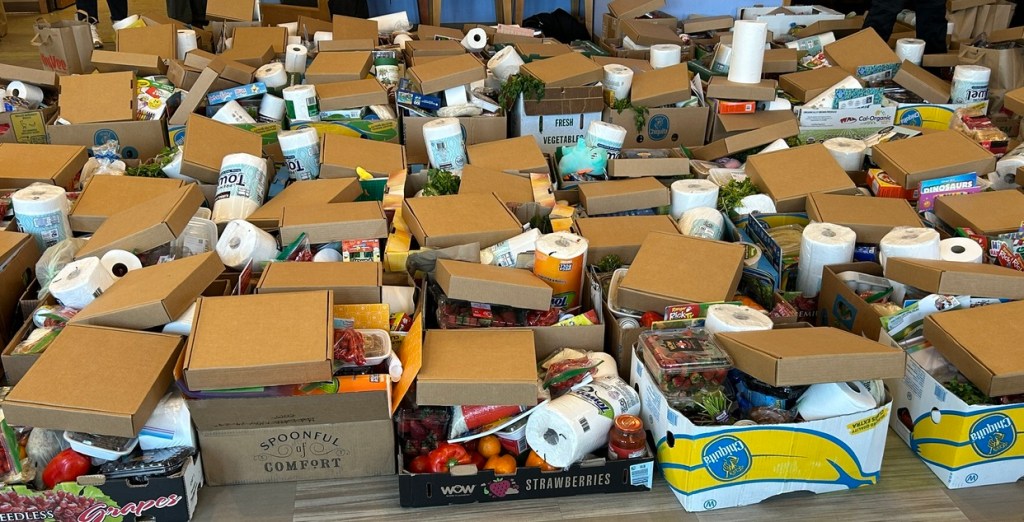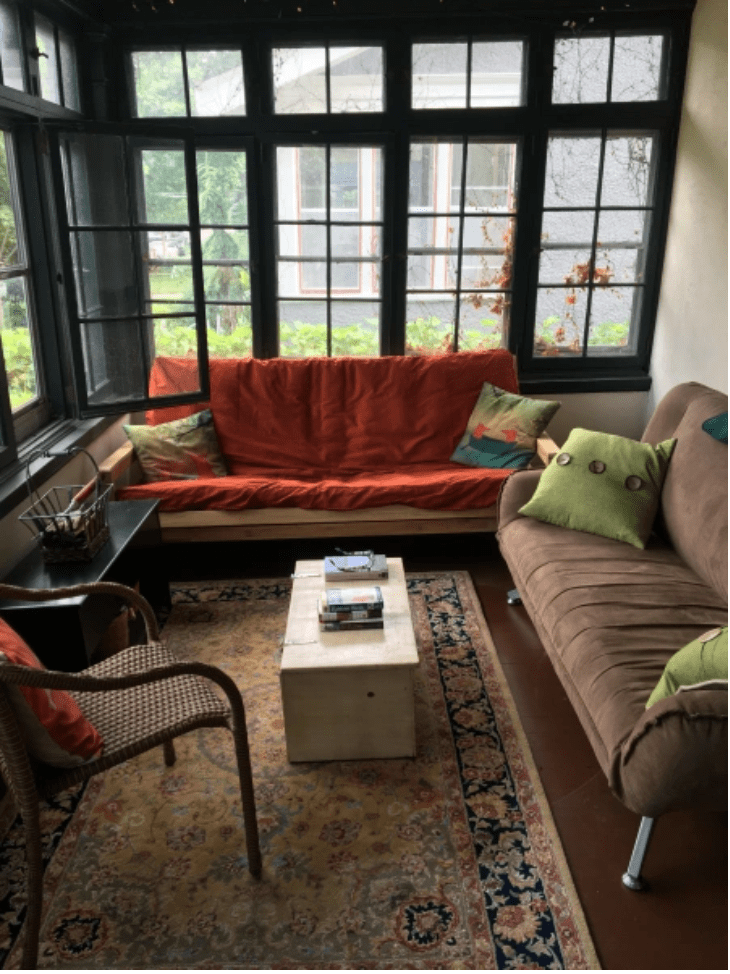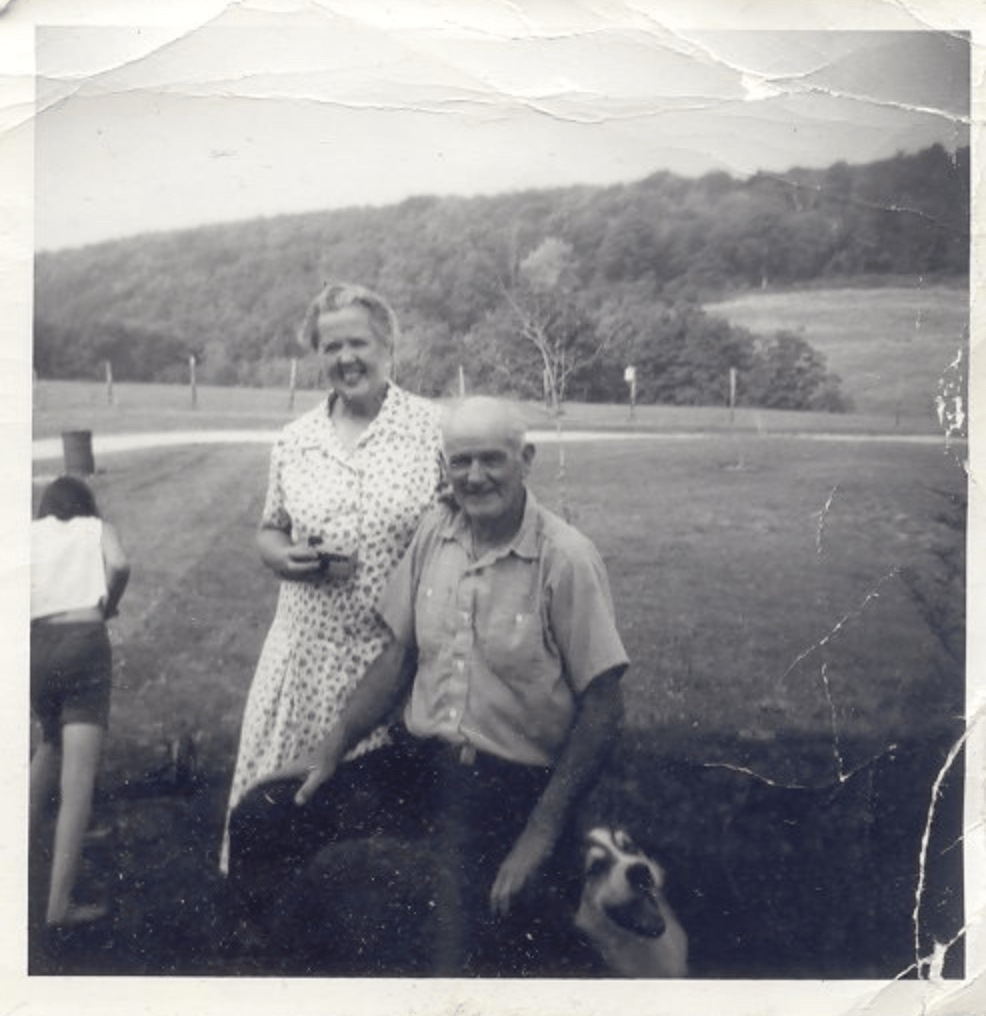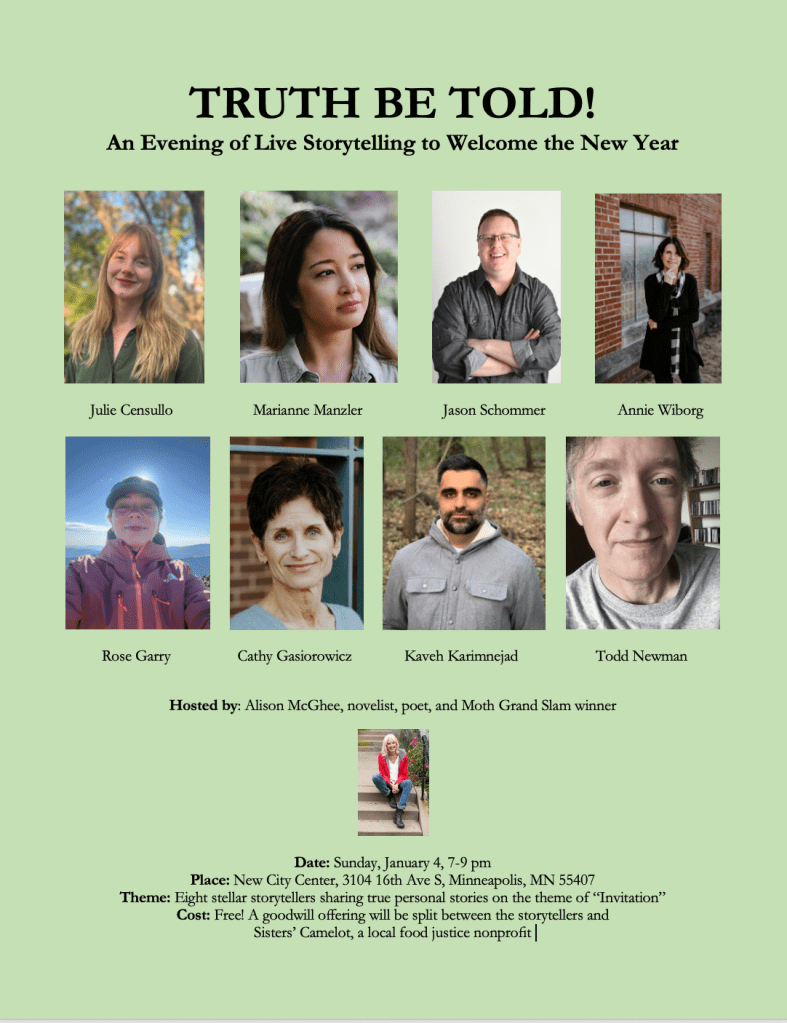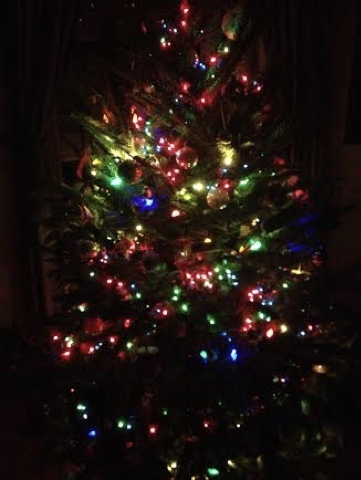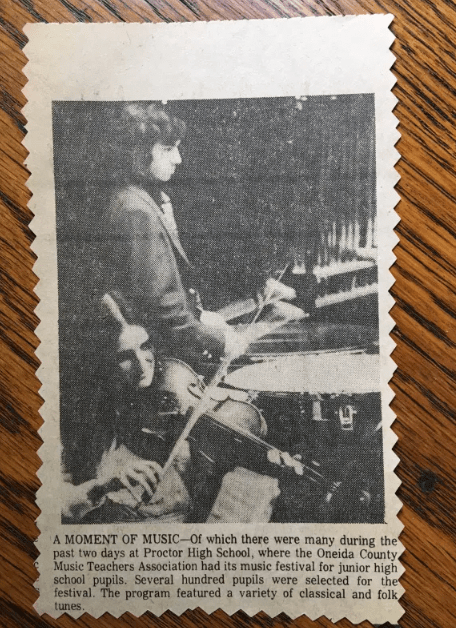Hello friends,
It’s been…quite a year. (I leave it to you to fill in all the blanks both general and personal.) At this point every December I write myself a letter that begins Dear Allie and then goes on to reflect on everything the year meant to me. These letters are starting to pile up –ten years’ worth now–and sometimes I read through a few of them and shake my head and laugh, because dang, it’s clear that, for good and not-good, I’ve always been who I am.
This is probably why I like to break out of my routines (I get sick of myself!) and why I need to break out of them. New energy, renewed energy, a spark of new creativity. If you feel the same, maybe a creative writing workshop is what you’re looking for. Or, maybe one would be the perfect gift for someone you love and appreciate.
I’ve just scheduled five new creative writing workshops for Winter-Spring 2026, along with our annual Write Together, which this year is January 12-17. Three of the newly-scheduled workshops are free, and the other two are $100. All are held via Zoom, so you can join in no matter where you are in the world. Below is the winter-spring schedule and thumbnail descriptions. Click here for all the details and registration info.
1. Write Together 2026! Jan. 12-17, 10-11 am CT
In our popular Write Together sessions, we convene each morning in our Zoom Room for a one-hour session. Each hour includes a brief reading and continues with a 30- to 45-minute guided prompt related to the theme of the day. Each day’s theme is different, each session features a different reading and a different prompt (or two to choose from), and all are designed to wake up the magical writer who lives within us all.
2. The Transformation of Trauma: three FREE workshops via Zoom
Have you gone through something awful, either recently or a long time ago? Maybe someone you love died, or you lost your job or home or a beloved pet. Maybe someone you love is an addict, and you struggle with conflicting feelings on how best to care for them and yourself. Maybe someone sexually assaulted you, or abused you over a long period of time. Maybe as a child, or adult, you struggled through domestic violence or emotional manipulation. If your life is compromised by any of these experiences, and you’re looking for some relief and support, welcome to these workshops.
Mapping the Unmapped: Saturday, January 24, 12-3 pm Central Time (check your time zone)
This workshop is designed for anyone living in the wake of loss: of a loved one, a job, a home, a relationship, a long-cherished dream, your physical or mental health.
Rewriting the Story, Reclaiming the Self: Friday, March 20, 1-4 pm Central Time (check your time zone)
This workshop is designed for anyone living with the memories, recent or long ago, of abuse: bullying, domestic violence, an emotionally abusive relationship, a sexual or physical assault.
The Echo That Remains: Friday, April 17, 1-4 pm Central Time (check your time zone)
This workshop is for anyone who loved someone who died of suicide, substance abuse, or untreated mental or physical illness.
3. Winter and Spring 2026 Half-day Workshops via Zoom
Could your creative spirit use a recharge? Come join me on my (virtual) porch for an exhilarating, fun, intensive workshop! All my three-hour workshops are taught via Zoom and designed for writers of any and all experience. No preparation or skills required. Workshop offerings are regularly updated (check out the brand-new Plotting for Pantsers and The Intuitive Leap class), and I’d also be happy to design one specifically for your writing group. Each workshop requires a minimum of five participants and is capped at fifteen.
Half-day workshop fee: $100. Note that I also offer a pay-as-you’re-able option to participants under financial duress (I’ve been there myself), up to two per class, from $10-$95, no questions asked.
The Freedom of Form: Saturday, March 21st, 9 -12 Central Time (check your time zone)
When you’re stuck in a piece of writing, feeling lifeless, what do you do? Grind through, hoping desperately that a window will open? Give up? Take a break? Declare yourself a failure and slink off to drown your sorrows? I’ve taken a shot at all these methods, and none of them work as well for me as re-framing the work itself. I give myself seemingly arbitrary rules to work within, e.g., Write this scene as a series of text messages, or, Write this novel as a series of one-hundred-word passages.
The freedom of assigned form is real, people, and it’s why novels usually have chapters, and picture books are usually under 500 words. It’s why enduring forms of poetry like haiku and sonnets and sestinas are still alive and thriving. In this workshop, which is designed for writers in all genres, we will play with form as a way to open up your writing, your mind and your heart to the freedom and creativity inherent in all art. We’ll complete some in-class writings, discuss published works and in general have a great and exhilarating time.
Memoir in Moments: Writing Your Life. Friday, April 10, 1-4 pm Central Time (check your time zone)
Maybe you’re at a new stage of life, looking back. Maybe you’re thinking about your family, or your children, and all the stories they might not know about you. Maybe you’re looking back on your childhood, the things you wondered about back then, the conversations you had, the places you went, how all of them were pieces of a much larger life puzzle. Think about that T-shirt you wore all the time in seventh grade. Think about your favorite dessert when you were five years old. Your favorite song as a senior in high school. The secret you’ve never told anyone. The dream that came true, and the one that didn’t. The unexpected turns your life has taken, and how they placed pattern to everything that came after. We’ll focus on memoir moments in this class, brief, specific writing prompts that shine up from the page and give readers a perhaps unexpected window into who you are.
For more information on these and other workshops, check out my website.
